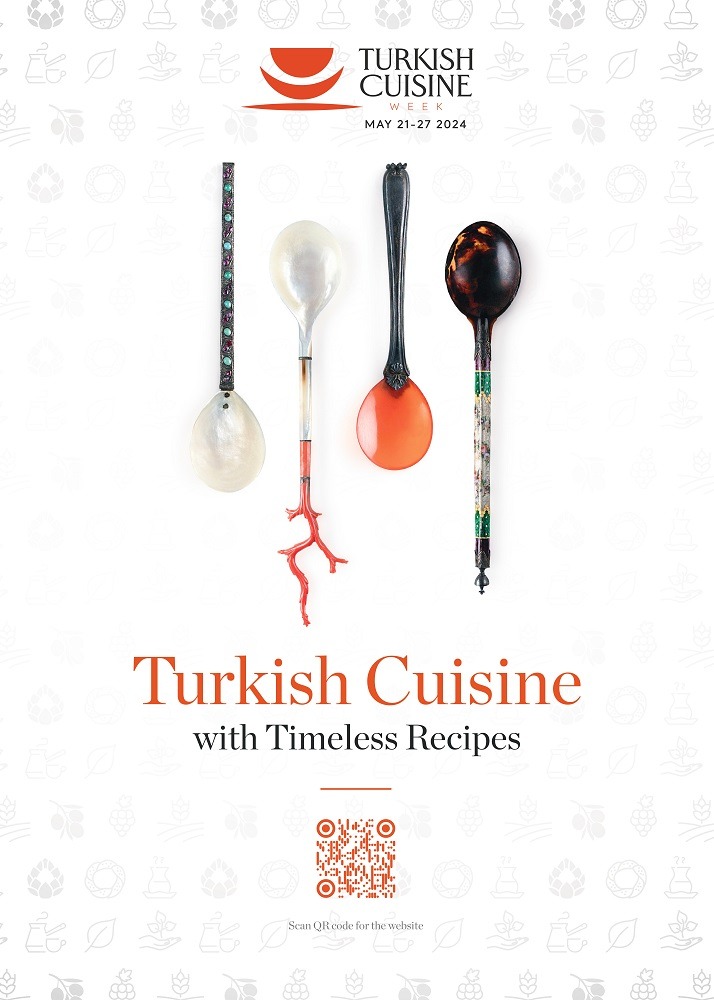Celebrating Turkish Cuisine Week 2024: Aegean Flavours and Zero Waste Principles
Turkish cuisine has evolved over centuries, influenced by the diverse cultures and climates of Anatolia. From the ancient Neolithic heritage of wheat cultivation to the rich legacies of the Hittites, Greeks, and Ottomans, Turkish food has been shaped by a tapestry of historical interactions.

 By H.E. Tuba Nur SÖNMEZ
By H.E. Tuba Nur SÖNMEZ
Ambassador of the Republic of Türkiye
Turkish cuisine, with its rich, multi-layered heritage, offers a culinary journey through history and geography, embodying traditions from ancient civilizations to modern-day practices. The Aegean region, in particular, stands out with its Mediterranean diet, famed for its health benefits and vibrant flavors. This year, Turkish Cuisine Week, held from May 21-27, highlights these Aegean delights, underscoring the sustainability and zero waste principles that have been integral to Turkish culinary culture for millennia.
Turkish cuisine has evolved over centuries, influenced by the diverse cultures and climates of Anatolia. From the ancient Neolithic heritage of wheat cultivation to the rich legacies of the Hittites, Greeks, and Ottomans, Turkish food has been shaped by a tapestry of historical interactions. The cuisine incorporates a wide variety of ingredients and techniques, reflecting the abundant flora and fauna of Türkiye’s fertile lands.
The Aegean region of Türkiye, with its stunning landscapes and deep-rooted history, epitomizes the Mediterranean diet recognized by UNESCO as an Intangible Cultural Heritage of Humanity. This area is renowned for its olive oils, seafood, vegetables, and local herbs. Olive trees, some of which are centuries old, flourish in this region, contributing to a diet that emphasizes health and sustainability.
Key ingredients of the Aegean diet include artichokes, zucchini blossoms, and a variety of local herbs. The olive oil from this region, particularly from İzmir and Milas, is celebrated for its quality and historical significance, with olive processing methods dating back 2,600 years. The Aegean menu featured during Turkish Cuisine Week includes dishes such as tarhana soup, fava bean puree, mücver (zucchini fritters), green beans braised in olive oil, and shrimp casserole, reflecting the region’s bounty.
Turkish cuisine has long embraced a zero-waste philosophy, ensuring that every part of an ingredient is utilized. This approach is not only ecologically sustainable but also culturally significant. Traditional dishes often incorporate leftovers, transforming stale bread into delicious meals like tirit and papara, or using vegetable peels and fish bones to create new dishes.
The nomadic Yoruk women of Türkiye exemplify this zero-waste ethos. Their frugal and resourceful cooking practices, which involve using every part of their ingredients and preserving seeds for future planting, highlight a sustainable lifestyle that modern society can learn from. This tradition of respecting and maximizing resources is echoed in Turkish proverbs and everyday practices, ensuring that food is shared and never wasted.
During Turkish Cuisine Week, the focus on geographically marked products underscores the ecological and cultural sustainability of Turkish cuisine. With 2218 products registered by the Turkish Patent Institute and 21 recognized by the European Union, Türkiye showcases a wealth of unique regional foods. These include Gaziantep baklava, Aydın chestnuts, Malatya apricots, Milas olive oil, and more, each contributing to the rich tapestry of Turkish culinary tradition.
These products, known for their high quality and natural production methods, are celebrated not only for their taste but also for their role in preserving the cultural heritage and biodiversity of Türkiye. By promoting these regional specialties, Turkish Cuisine Week highlights the importance of sustainable and traditional food practices.
Turkish Cuisine Week is particularly special as it is being held under the auspices of our First Lady H.E. Emine Erdoğan, also in cooperation with the Türkiye Tourism Promotion and Development Agency (TGA) with the support of the Ministry of Culture and Tourism. Her dedication to promoting Turkish culture and sustainable practices has been instrumental in bringing this event to the forefront. Her involvement underscores the significance of Turkish culinary traditions and the importance of preserving and promoting these rich cultural practices on both a national and international stage.
As we celebrate Turkish Cuisine Week, the focus on Aegean flavours and zero waste practices offer a glimpse into the heart of Turkish culinary culture. This rich tradition, shaped by history and geography, emphasizes the importance of sustainability, health, and community. Through the timeless recipes and innovative practices of Turkish cuisine, we can appreciate the deep connections between food, culture, and the environment, ensuring these traditions continue to thrive for generations to come.













